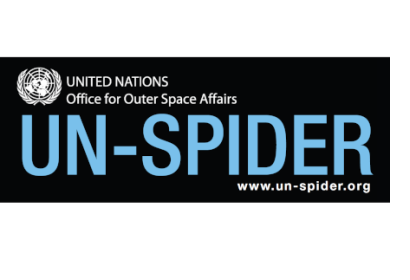
United Nations Office for Outer Space Affairs (UNOOSA)
United Nations Platform for Space-based Information for Disaster Management and Emergency Response (UN-SPIDER)
Agenda still subject to change, link to registration will be provided in due time.
Description
In recent years, climate change, extreme weather, population growth and urbanization have led to an increasing number of people being threatened by natural disasters, and it has become a global challenge to mitigate disaster risks and reduce the loss of people's lives and property and environmental damage. Developing early warning systems for disasters is one of the key tools to overcome this challenge and has received widespread attention worldwide. Goal 3 "Ensure healthy lives and promote well-being for all at all ages" and Goal 13 "Take urgent action to combat climate change and its impacts" of the 2030 Agenda for Sustainable Development encourage countries to develop early warning systems; Article 7 "Enhancing adaptive capacity, strengthening resilience and reducing vulnerability to climate change" and Article 8 "Loss and Damage associated with Climate Change Impacts" of the Paris Agreement also place a high priority on strengthening early warning systems; the Sendai Framework for Disaster Risk Reduction 2015-2030 explicitly calls for the development of multi-hazard early warning systems to improve their availability. At the same time, in recent years, the international community has launched extensive discussions on hot topics such as "early warning, early response" and "early warning for all", hoping to improve society's ability to prevent and respond to disaster risks by developing a sound mechanism for early warning and emergency response to natural disasters led by the government, participated by the society and coordinated by various parties. Advances in science and technology have brought new development opportunities to improve the accuracy and effectiveness of early warning. As an all-weather, all-day, full-coverage technology for earth observation, the space-based technology plays an irreplaceable role in disaster risk management, especially in disaster risk identification, assessment, monitoring and early warning.
Objectives
- To enhance the effectiveness of space-based technology in multi-hazard early warning applications, especially in the identification, analysis, monitoring and risk assessment of disaster-causing factors, improve the availability and usefulness of basic space data, and provide a scientific basis for the government's disaster risk management.
- To share and exchange practices and experiences in the operationalization of impact-based multi-hazard early warning systems in the international community, promote integration and convergence within the systems, and enhance the effectiveness and efficiency of multi-hazard early warning decision support.
- To promote the effective dissemination, distribution, understanding and response of early warning information, and discuss and exchange the functions, types, models, contents and recommendations for action of early warning information and decision support products for different user groups.
- To advocate the early warning model of government leadership, multi-sectoral collaboration and public participation, and encourage the building of multi-hazard early warning capacity with the participation of the whole society, all elements and processes, so that the early warning systems can protect everyone.
Agenda
Day 1
- Opening ceremony and keynote discussions
- Session 1: Challenges and practices of space-based technologies in supporting risk-informed decision-making and integrated impact-based multi-hazard early warning systems
Day 2
- Session 2: Practices in the effective operationalization of multi-hazard early warning systems
- Session 3: Early warning information release, dissemination, communication and action
Day 3
- Session 4: Multi-hazard early warning government governance capacity for early warning for all, people-centered, public participation and whole-process engagement
- Session 5: Strengthening international and regional cooperation in multi-hazard early warning
- Closing ceremony
